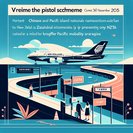
To bolster a chronically tight labour market, MigrationNT held an evening information session in Darwin on 6 November 2025 outlining changes to the NT General Skilled Migration program (GSM) and the newly negotiated Designated Area Migration Agreement (NT DAMA III). Employers, community leaders and prospective migrants gathered to learn how offshore family-stream nominations and employer-sponsored concessions can fast-track residency in Australia’s Top End.
Officials explained that under GSM, Territory residents may now nominate skilled overseas relatives for state sponsorship—an attractive option for companies struggling to fill roles in health and agritech. Meanwhile, DAMA III expands the occupation list and relaxes English and salary thresholds for regional employers, offering a five-year visa with a PR pathway after three years.
![Darwin Hosts Information Session on Northern Territory Skilled-Migration Pathways]()
The Northern Territory Government framed the session as part of a wider talent-attraction push ahead of new defence and critical-minerals projects. With Darwin’s rental vacancy rate below 1 percent, authorities also promoted forthcoming worker-accommodation hubs and tax incentives to lure interstate investors into build-to-rent schemes.
For global mobility managers, the NT’s concessions present an alternative to mainstream 482 sponsorship: lower costs, occupation flexibility and easier family inclusion. Attendees were encouraged to submit Expressions of Interest before the Territory’s final 2025-26 nomination quota is confirmed in December.
A follow-up webinar and one-to-one employer clinics will run through February 2026, signalling Darwin’s determination to compete nationally for scarce talent.
Officials explained that under GSM, Territory residents may now nominate skilled overseas relatives for state sponsorship—an attractive option for companies struggling to fill roles in health and agritech. Meanwhile, DAMA III expands the occupation list and relaxes English and salary thresholds for regional employers, offering a five-year visa with a PR pathway after three years.

The Northern Territory Government framed the session as part of a wider talent-attraction push ahead of new defence and critical-minerals projects. With Darwin’s rental vacancy rate below 1 percent, authorities also promoted forthcoming worker-accommodation hubs and tax incentives to lure interstate investors into build-to-rent schemes.
For global mobility managers, the NT’s concessions present an alternative to mainstream 482 sponsorship: lower costs, occupation flexibility and easier family inclusion. Attendees were encouraged to submit Expressions of Interest before the Territory’s final 2025-26 nomination quota is confirmed in December.
A follow-up webinar and one-to-one employer clinics will run through February 2026, signalling Darwin’s determination to compete nationally for scarce talent.











